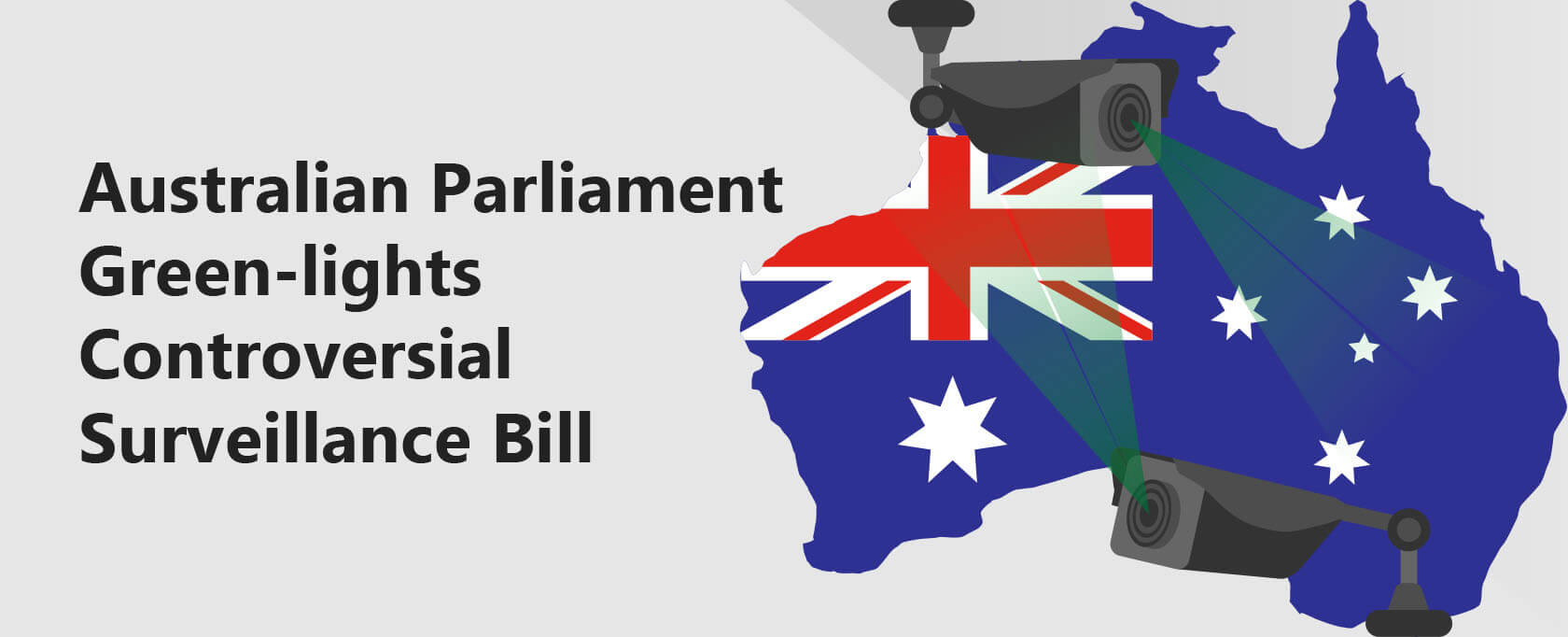Australian Parliament Green-lights Controversial Surveillance Bill
The Australian parliament recently passed an unheard-of surveillance bill that crushes all efforts for privacy in recent years. Police can infiltrate your device to collect and delete data at their discretion.
Your social media accounts are vulnerable as well. Law enforcement can take them over without a judge’s warrant.
What Is the Australian Surveillance Bill?
This isn’t the first time we’ve heard of Australia trying to limit privacy and information security. The Australian government has been attempting to impose harsh surveillance for years until – now that is – they eventually did it. Its name is the Surveillance Legislation Amendment (Identify and Disrupt) Bill 2020, and its purpose is to deal with online crime more effectively.
We’re okay with that. We’re not okay with how it aims to achieve that goal. This bill gives the Australian Criminal Intelligence Commission (ACIC) and the Australian Federal Police (AFP) three new prerogatives:
- Network Activity Warrant – individuals subjected to this warrant will have their network activity and online devices surveilled by the police. The law enforcement will collect data from any networks used or likely to be used by the subject.
- Data Disruption Warrant – allows the police to “disrupt” any set of data by modifying it, adding to it, copying it, or deleting it.
- Account Takeover Warrant – enables the police to hijack any online account of a subject to gather relevant information
So, if you or anybody you know becomes part of an investigation for a crime, the Australian police will be in their right to take control of your online accounts. They can modify your public information however they want to, with no foreseeable limits.
Even better, the Administrative Appeals Tribunal doesn’t even need a judge’s warrant to issue one of these warrants. A member of the Tribunal can do so at any time, whether the justification is good or bad.
It makes matters worse that the Surveillance Bill forces companies to obey and assist the police in this endeavor. Any Australian company, system administrator, or data controller will be legally compelled to actively help the police add, copy, modify, or delete the data of a subject under investigation.
The penalty for a company that disobeys this is jail for up to ten years. Things are looking better and better, right?
Why Did It Come to Pass?
Terrorism and child exploitation – that’s what politicians argue the Surveillance Bill is for. But the truth is the bill allows the police to apply these prerogatives on any “serious Commonwealth offense” or a State Offence with a “federal aspect.” This doesn’t sound like it only refers to child exploitation and terrorism, does it?
Because it doesn’t, this specific wording refers to any offense punishable by at least three years of imprisonment. This includes acts of piracy, terrorism, violence, company violations, and sharing child abuse material. Even acts of tax evasion fall under this umbrella.
Does Anybody Oppose It?
Someone does oppose the bill in full force. Senator Lidia Thorpe, who is the Greens spokesperson for Justice, argued that:
“The Richardson review concluded that this bill enables the AFP and ACIC to be ‘judge, jury, and executioner.’ That’s not how we deliver justice in this country. The bill does not identify or explain why these powers are necessary, and our allies in the United States, the United Kingdom, Canada, and New Zealand do not grant law enforcement these rights.”
“In effect, this Bill would allow spy agencies to modify, copy, or delete your data with a data disruption warrant; collect intelligence on your online activities with a network activity warrant; also, they can take over your social media and other online accounts and profiles with an account takeover warrant.”
She would be right in saying what she said. If an individual falls within the guilt spectrum, his right to privacy disappears. This applies to a terrorist who bombed airports and a regular guy pirating video games on the internet. The major problem of the bill, besides the bill itself, is the lack of concise limitations to these prerogatives.
Deliberate Execution of Privacy
That’s what the new Australian Surveillance Bill is, effectively. It’s a deliberate execution of privacy and even human rights. Lawyer Angus Murray, Chair of Electronic Frontiers Australia’s Policy Team, talks about law enforcement being reduced to mere hackers:
“This is now a regime in Australia where we have conferred power on law enforcement agencies to hack Australians’, and potentially overseas persons’, computers and to take over accounts and modify and delete data on those accounts,” he said in an interview with Information Age.
“Australia doesn’t have constitutionally enshrined rights to political speech and other human rights, but if we’re going to give law enforcement these powers, that should be checked and balanced against a human rights instrument at the Federal level.”
Murray thinks there aren’t enough safeguards in the bill protecting Australians from abuse of power. Theoretically, the police could plant incriminatory evidence on your computer and put you under arrest when they “discover” it. While that’s certainly now what the bill creators had in mind, the potential slippery slope is there.
Big Brother in The Making
George Orwell is a perfect mention in this context. Big Brother seems to be spreading its arms wide over all Australians. People are no longer safe in their homes, on their personal computers. Their Facebook accounts are now at risk of being hacked by the police, the very people who were supposed to protect them from hacking attempts.
The Surveillance Bill grants police free rein on our online information and freedoms. It’s not something we should accept so readily! Those who watch us hold all the power to do as they see fit.
Our Mission
We believe security online security matters and its our mission to make it a safer place.


